
L’Amore (‘Love’) is a 1948 Italian drama anthology film that consists of two parts, The Human Voice (Una voce umana), based on Jean Cocteau’s 1929 play of the same title, and The Miracle (Il miracolo), based on Ramón del Valle-Inclán’s 1904 novel Flor de santidad.
You May Also Like
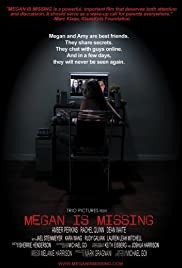
Fictional drama based on actual events, about two teenage girls who encounter an Internet predator.

Adi (40), a shy and introverted anthropologist who got recently dumped by his girlfriend, moves to Ferentari, most notorious outcasted neighborhood in Bucharest. He wants to write a study on manele music. The pop music of the Roma community serves as a way out for some, but mostly as one more means for the mafia pimps to make money off their acts and keep them in slave-like dependency. While researching his subject, Adi meets Alberto, a Roma ex-convict and a bear of a man, who promises Adi to help him. Soon, the unlikely pair begins a playful romance in which Adi feeds Alberto with improbable plans of escaping poverty and Alberto reciprocates with well-concocted phrases of love. Little by little their casual affair grows into love. And the funny and sweet teasing turns into something precarious, since Alberto is both dangerous and fragile and belongs to a world whose codes Adi doesn’t understand.

Hızır loses his wife Halime, who has been in intensive care for a long time. Her daughter, Hatice, learns from the nurse Evren, who had been devotedly helping her ailing mother, that he caused her mother’s death. Hatice tries to be compassionate to her father, who comes to her house. She refrains from revealing the truth to him, but after a while, she can’t keep this secret anymore and shares it with her sister, Kader. While thinking that they should tell Evren’s confession to their father, Kader thinks they should go to the police. Kader’s persistence on her sister creates an existential problem for Hatice, who is crushed under the weight of Evren’s confession. All family members have to face the truth at a family dinner.
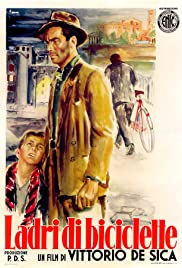
Antonio, an unemployed man in the depressed post-WWII economy of Italy, at last finds a good job hanging up posters, the only requirement for which is that he must have his own bicycle. When Antonio’s bicycle is stolen, he and his son are forced to walk the streets of Rome in search of it, or else face ruin.
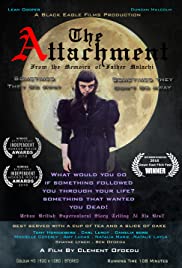
An innocent girls world is turned upside-down when an ancient evil begins to stalk her family. An attempt by a religious sect to rid the evil from the family results in catastrophic results that will have far reaching consequences.
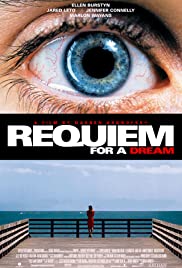

In an effort to reunite with his daughter after a period of absence, a father takes her on a road trip to Santa Fe, New Mexico. Along the way they encounter some interesting characters and obstacles while sorting out their relationship.

A teenager ends up being hounded by a well-groomed and seemingly cute and tiny dog that actually turns out to be a nightmare of a beast.

In 1989, known as Mendax, Julian Assange and two friends formed a group called the International Subversives. Using early home computers and defining themselves as white hat hackers – those who look but don’t steal – they broke into some of the world’s most powerful and secretive organisations. In the eyes of the US Government, they were a major threat to national security.

On Sam’s return from military service, Lily sets her heart on revitalising their relationship, but with Sam’s worsening PTSD isolating him from friends, family and the community, she too is drawn deeper into his post-war world.
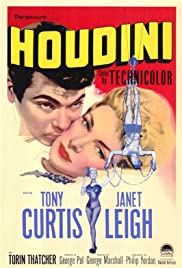
By the early 1900s, the extraordinary Houdini earned an international reputation for his theatrical tricks and daring feats of extrication from shackles, ropes, handcuffs, and Scotland Yard’s jails… The film depicts Houdini’s memorable escape from any pair of handcuffs produced by the audience; the outdoor exhibition, when he allows himself to be hanged upside down from his ankles, suspended from the roof of a high building, in a strait jacket; and, the dramatic act, when he accepts to be shackled with irons and placed in a box that is locked, roped, and submerged in frozen waters…
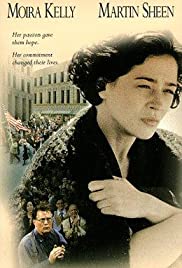
“Entertaining Angels” is an interesting title for this movie about the 1920’s and 30’s social activist, Dorothy Day, for it can be regarded that what this woman did, sometimes single-handedly, always controversially, in her fight against social injustice would, indeed, be wonderful entertainment for angels… or it could mean that her work was for the benefit of the ‘angels’ at the bottom of the social ladder for whom she fought daily against those who would hold them down… this included her work as a suffregette. However it is meant, this film captures much of the real-life drama that took place on big city streets, and of the very personal trials which eventually led her to convert to roman Catholicism, and a dedication to helping the poor.